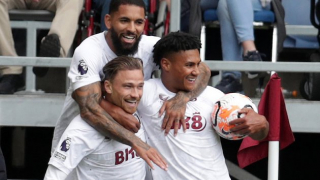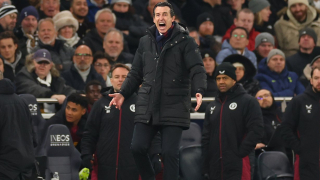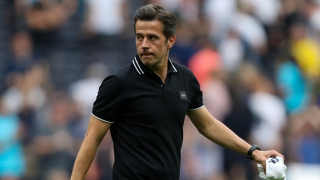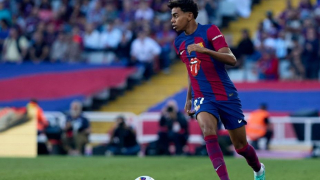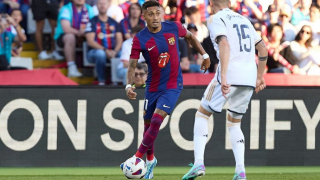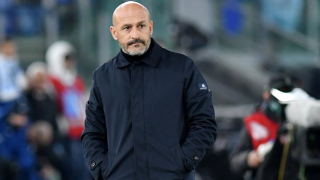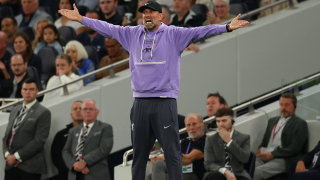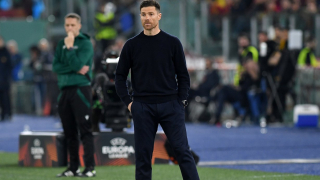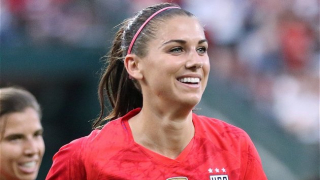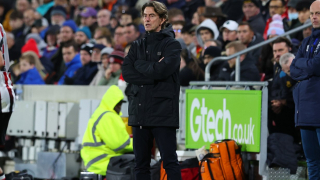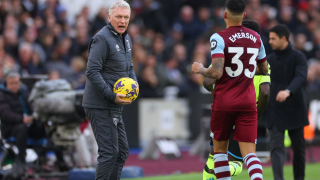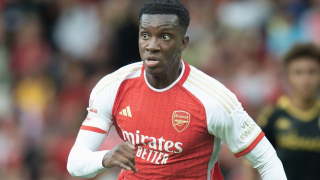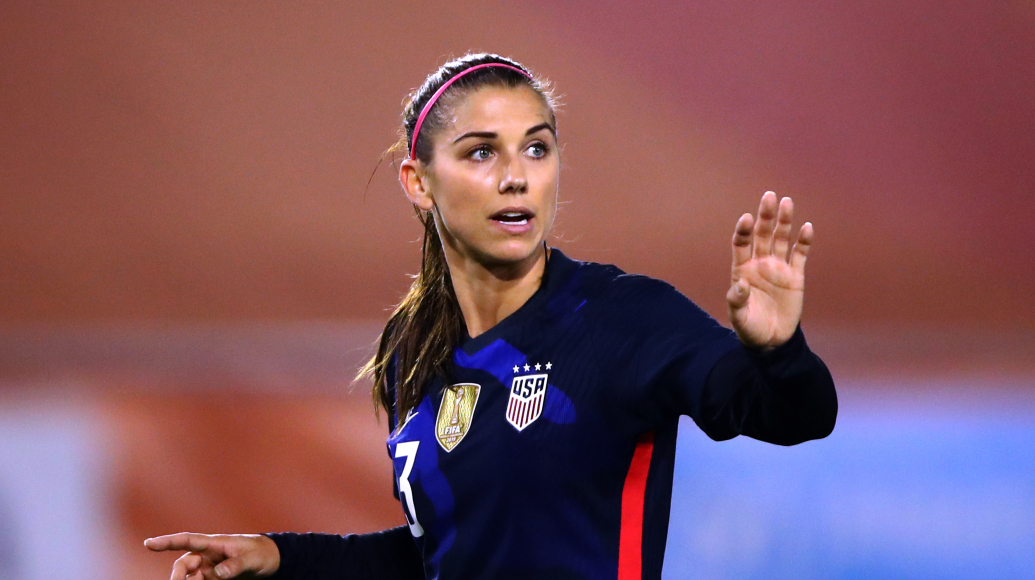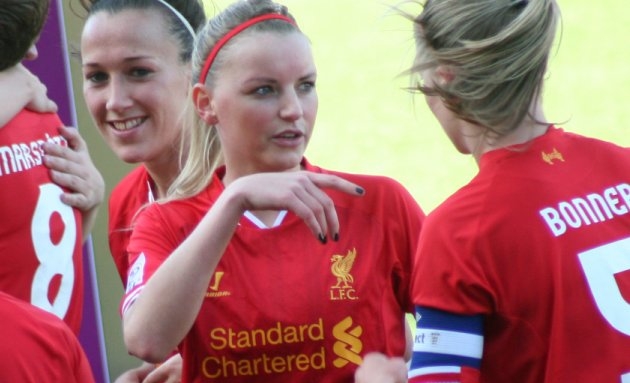This week, we discuss Mark Parsons' decision to leave the Portland Thorns at the end of the 2021 season to take over the head coaching position for the Netherland's women's national team. Shelly Kerr, who resigned as Scotland's women's national team head coach late last year, has taken a technical position with the English FA. Casey Stoney's recent departure as head coach of Manchester United has people wondering if she is headed to the NWSL for next season, while former English international forward Eniola Aluko has taken an administrative role with Angel City FC in Los Angeles. We also review Robert O'Connor's excellent new book about Eastern European Football: Blood and Circuses: Football and the Fight for Europe's Rebel Republics.
Mark Parsons to take over as Netherland's Women's National Team Head Coach following the 2021 NWSL season's conclusion
In an announcement that had to be moved up ahead of its intended release date, as there were leaks in Europe, current Portland Thorns head coach Mark Parsons—a native of England—will take over as Netherland's Women's National Team head coach from Sarina Wiegman after the conclusion of the NWSL season in November. Wiegman in turn will move to England to take charge of the FA's women's national team in the run-up to the 2022 Women's EURO Finals and the 2023 Women's World Cup Qualifying and Finals (which they should easily qualify for), after she ends her duties with the Netherlands at the 2021 Olympic Games this summer. Wiegman was hugely successful as she guided her nation to the 2017 Women's EURO title at home and the Final Game of the 2019 Women's World Cup in France. The Netherlands wanted Parsons to start in September but he said that he wanted to see out the Thorns' season, which runs into November (including the playoffs), calling it "non-negotiable."
Mark Parsons (left) with KNVB (Netherlands Football Federation) Director of Top-Level Football Nico-Jan Hoogma (right) and Managing Director Jan Dirk van der Zee. Photo courtesy of KNVB Media
The pressure will be on Parsons in coaching arguably the second best women's national team in the world. We really saw two different aspects of the announcement with the Dutch and European side as opposed to the Portland/U.S. reaction. With the latter, the tone was very much focused on Parson's finishing the 2021 season—Portland won the Challenge Cup just a few weeks ago—and win targeting their third NWSL title in nine seasons and second under Parsons, who took over in 2016. Thorns and Portland Timbers (MLS) General Manager Gavin Wilkinson told the media on May 20, "This is not what we were expecting to be managing at this stage of the season; however collectively we are in agreement with Mark's decision as it is best for him and his family. We remain 100% committed to the 2021 season with Mark at the helm and appreciate the way in which this has been managed from the KNVB [Dutch Football Federation] and Mark. The process for hiring a new head coach will start in the coming months and we plan to appoint the next head coach at the conclusion of the season." Parsons then said, "The Thorns are the pinnacle of club football and, over the last six years, I have had the distinct privilege of calling Portland my home. I am incredibly thankful for the support and understanding of Merritt [Paulson, Timbers/Thorns owner] and Gavin throughout this process. They truly treat this team as family and their leadership continues to set the standard. I am more focused and committed than ever to helping our players and staff reach our goals and bring joy to our fans this season." Parsons added that being in Europe will be easier for his wife and daughter to be closer to family in England, with the last year due to COVID being particularly stressful on his family with travel restrictions. He really downplayed the new position and focused on Portland and the NWSL season.
With the Dutch media, Parsons was able to emphasize that his new jobs was, "A unique opportunity." He added, "It feels incredible to be a part of a team that has received some special results but also knowing that this team has so much ambition and the future looks incredible…to be part of something that is really pushing boundaries in the women's game. I am honored with this opportunity."
Parsons (35) coached with Chelsea Ladies reserves in England before coming to the States. He was with the Washington Spirit for three seasons before moving to Portland [replacing Paul Riley, who then took charge of the Western New York Flash/Carolina Courage and led them to multiple league crowns], and has coached in the NWSL for all of its nine seasons. He has signed with the KNVB through the 2023 Women's World Cup in Australia/New Zealand and will be also be in charge of the Dutch side next summer at Women's EURO finals in England.
Parsons is quite young at 35 and this is a huge opportunity for him. He has been successful as a club coach but has a reputation of being difficult to deal with at times. If he can continue the Dutch string of successes at the next Women's EURO and Women's World Cup, he should be we placed to either continue in the Netherlands or perhaps come home to England to coach the national team. It will be an interesting process to follow.
Shelley Kerr has been appointed to the English FA as a new women's 'How We Play' technical lead
Former Scottish women's national team head coach and player Shelly Kerr has been named by the English FA as their new women's technical lead. Kerr guided Scotland to their first Women's World Cup Finals appearance in 2019 and quit in December after her side surprisingly finished third in their Women's EURO 2022 qualifying group by losing 1-0 to Portugal and Finland (twice) in their last three games. In her new role, Kerr will report into the FA's head of women's technical Kay Cossington, who has coached national youth teams. Her responsibilities will include managing the implementation and development of England Women's 'How We Play' strategy across all women's national teams and oversee the development of the women's national coaches, to ensure they are consistently at the forefront of technical excellence.
Casey Stoney Leaves Manchester United—Reports Fly that she is NWSL-bound.
Manchester United manager Casey Stoney surprised many when she recently resigned from her role as head coach of Manchester United. She was their only women's coach and across three season, won promotion to the WSL and then finished fourth the last two consecutive seasons. There are reports in the U.S. that she will be joining former U.S. national team head coach and British-born Jill Ellis in San Diego for the expansion franchise for the NWSL in 2022. (see: The Week in Women's Football: Challenge Cup review; San Diego replaces Sacramento; Ovechkin joins Spirit ownership - Tribal Football). Ellis would be the team's operations director and it would be expected that Stoney would be head coach. She would join a majority of U.K. coaches with the league's ten teams—currently there are eight in the ten team league: Christy Holly (Northern Ireland) of 2021 expansion side Racing Louisville, Huw Williams (Wales) of Kansas City, Paul Riley of North Carolina Courage, Mark Parsons of Portland, Freya Coombe of NY/NY Gothan FC, James Clarkson with Houston Dash, Richie Burke of Washington Spirit and Marc Skinner of Orlando Pride (the latter six all of England).
Stoney said in a Manchester United statement, "This has been an incredibly tough decision. I have loved leading this group and I am proud of what we have achieved together. However, after a difficult season with disruption caused by the pandemic, I now feel the time is right to take some time away and for someone else to come in and lead the team on the next stage of its journey." Her current American internationals, Tobin Heath and Christian Press, have been linked with Angel FC in Los Angeles, the other new expansion franchise for 2022. L.A. could still be Stoney's final destination given that her former England national teammate Eni Aluko has recently been named Angel City FC technical director (see below). With Parson's imminent departure from Portland to the Netherlands (see above), she will likely be a top prospect for the Thorns' management as well. Stoney played in 130 full internationals for England and at the club level for Arsenal, Chelsea, Charlton Athletic, Lincoln and Liverpool. Stoney's resignation means three WSL clubs are without a manager following Australian Joe Montemurro's decision to leave Arsenal for family reasons and the departure from Aston Villa of Marcus Bignot and Gemma Davies.
Eniola Aluko is named sporting director of Angel City FC in Los Angeles
Eniola Aluko, who played 102 times for England, was named this month as the first sporting director for Angel City FC, the NWSL expansion franchise in Los Angeles that will share a stadium with LAFC (MLS). Aluko (34) was most recently sporting director at WSL team Aston Villa in Birmingham, which last season finished tied for ninth in the 12-team WSL with 15 points from 22 games. She previously played in the States with Women's Professional Soccer franchises Saint Louis Athletica, the Atlanta Beat and Sky Blue FC from 2009-2011, with 20 goals in 54 games, retiring as a player after the 2018-19 season with Juventus in Italy. The Nigerian-born Aluko said, "This is an incredible opportunity to help write Angel City's first chapter and to build a team that is people-focused and admired by players and fans all over the world. I have no doubt the club will be a trailblazer, not just in the NWSL and women's soccer, but for sports clubs globally." Aluko is a lawyer in the U.K. and has been a highly acclaimed football television commentator.
Review: Blood and Circuses: Football and the Fight for Europe's Rebel Republics
English Football Writer Robert O'Connor has just released an excellent new book on football in Eastern Europe entitled: Blood and Circuses: Football and the Fight for Europe's Rebel Republics (London: Biteback Publishing, 2021).
Blood and Circuses: U.S. edition cover (above).
O'Connor's new book examines the context of football in Central/Eastern Europe after the demise of the Soviet Union, focusing on nations that have full nation status but are dealing with breakaway republics that are non-aligned with FIFA, and have even recently fought battles over the disputed territory
O'Connor, who writes for the Independent among other U.K. outlets, examines the following territories:
- Kosovo which has finally been recognized by UEFA but not by the United Nations after its devastating conflict with Serbia, but the roots for the conflict date back to the days of the former Yugoslavia.
- Armenian-controlled Nagorno-Karabakh which sits within the boundaries of Azerbaijan. In late 2020, Azerbaijan and Armenia again fought over Nagorno-Karabakh. A cease-fire agreement brokered by Russia has resulted in some of the land that Armenia captured in the 1990's being returned to Azerbaijan, along with some territory that the latter nation captured in the recent war.
- Georgia and the Russian-backed regions of Abkhazia and South Ossetia.
- Moldova and its breakaway Transnistria region (also backed by Russia).
- The high profile 'autonomous' region of Donbass within Ukraine, where Russian sentiment is high.
O'Connor does not mention women's football in this book but for the FIFA-affiliated nations that he discusses: Armenia, Azerbaijan, Georgia, Kosovo, Moldovia and Ukraine, women's football is still in its infancy; the historical context that the author provides is relevant for the development of the women's game and parallels some of the struggles on the men's side that he reviews. Even some of the more Western-leaning nations like Lithuania (Gintra-Universitetas and Kazakhstan (BIIK-Kazygurt) focus on one powerful women's team that liberally imports players from around the world and typically dominates its league to become a UEFA Women's Champions League regular. This column has discussed the rising potential of Central and European nations at the national team and WCL events in recent years, the latter through our annual coverage of the UEFA Women's Champions League early rounds. We saw earlier this year that Ukraine and the Czech Republic made it to the play-ins for a UEFA Women's Championship Finals Spot next summer in England—Ukraine losing to surprising Northern Ireland while the Czech Republic narrowly fell on penalty kicks to Switzerland after two rounds. Russia however did qualify through the play-ins with a narrow 1-0 win over Portugal for the sixth time in the last seven editions of the UEFA Finals. We also looked briefly at the national team history of Kosovo and some recently games that Armenia played recently (see: The Week in Women's Football: Lyon fall to PSG; New team in Baton Rouge; Sky Blue FC name change; - Tribal Football).
O'Connor tells us some very interesting stories about football in the regions, based on his travels throughout the area. He discusses Ukraine's Shakthar Donetsk leaving the Russian breakaway region of the Donbass to continue to play in the Ukrainian league—abandoning its base in Donetsk to essentially wander in the western portion of the country, while replacing Dynamo Kiev as arguably the best club side east of Germany and west of Russia.
Another competitive side is FC Sheriff [of Tiraspol, in the breakaway republic of Transnistra] "are the kings of Moldovan football," as O'Connor writes, "But they rule over a poverty-stricken land. Since their founding in 1997 and promotion to the Divizia Nationala the following year, they have won seventeen out of twenty-one league championships. The stadium, with its surrounding training and hotel complex, was completed in 2002 at a cost of around $200 million and is so large it could form its own sub-district of Tiraspol. For context, only one other team in Moldovan football owns its own stadium. The club has shot to the zenith of Moldovan football like a bullet. The Divizia Nationala is a colourless sham, though that is only partially the fault of Sheriff. A stale state of ambivalent half-interest amongst fans prevail here. [Pages 224-225[.
Another team in Moldova had supreme struggles to meet payroll, "Zimbru were so poor that between 1991 and 1994 they took to paying their players in wine acquired from Chisinau's famous Milestii Mici winery. Most players gave the wine to their families, who for a time were able to keep afloat by selling the wine on at local markets and, for those with contacts, internationally. Ironically it was the collapse of the wine trade between Cisinau and Moscow that had contributed to the economic collapse in the first place." [page 251]
In Georgia, O'Connor describes a process at the club level that was pretty similar throughout the region as the USSR broke up in the early 1990's, "The collapse of the USSR footballing ecosystem at the end of the 1991 season meant that everything changed for all of the teams throughout the region. However, it completely snookered the already struggling Dinamo Sukhumi. Two years earlier, as clubs throughout Georgia had resigned from the Soviet league to form their own championship, the team had been torn in half by the exodus of its Georgian core, who left to form a new club, Tskhumi Sukhumi. A rump Dinamo team remained briefly in the Soviet First League, the holes in its squad papered over by emergency recruits from clubs in Moscow who made fringe players available for emergency transfer, but the chasm it left in Abkhazian football was already irreversible. 'We had our best moment in football at the same time that we started to have ethnic problems,' explains Inal Khasig [a Sukhumi journalist] diagnostically. 'Dinamo Sukumi was half Georgian, half Abkhaz. So you see, that was going to be a problem.' 'The Abkhazian players were desperate to stay with the Soviet Union,' says Kvaratskhelia [a key initiator in Georgian football breaking away from the USSR-run federation to become independent]. 'When the Georgian players of Dinamo Sukhumi left, everybody cried and kissed each other. Everybody. They then separated. The Abkhazians and the Russians were desperate for them not to go.'" [Page 154].
O'Connor also discussed how, due to an article in the Independent, he found himself banned from entering Azerbaijan. The Ministry of Foreign Affairs of the Republic of Azerbaijan had issued a statement:
"During this illegal visit [to Nagorno-Karabakh], O'Connor, by politicizing football and sports in general, is trying to promote the regime created in the occupied Azerbaijani territories…The author of the article [in the Independent] will be added to the Azerbaijani Foreign Ministry's list of undesirable persons." Criminal proceedings were started, preventing O'Connor from covering FK Qarabag in Champions League and the 2019 Europa League final between Chelsea and Arsenal. He also cannot attend the postponed 2020 European Championship matches in Baku this summer. Planes do get redirected for emergencies—that's how track and field's Ben Johnson's doping doctor, Dr. George "Jamie" Astaphan, was undone. He was arrested in the U.S. when a flight from his native St. Kitts in the Caribbean to his home in Toronto, Canada had to make an emergency landing at JFK Airport in New York City. Johnson set an Olympic record in the 100 meter dash in 1988 but was disqualified after a drugs test. Astaphan served two years and then was released and continued to practice medicine in St. Kitts until his death in 2006. The recent diversion earlier this month of the Ryanair flight to Belarus on its way to Lithuania from Athens to arrest journalist Roman Protasevich should give O'Connor pause. It's easy to say, 'Just don't go there,' but it is a pretty serious situation to face for a football writer that travels the region for key club and international games and he must be quite concerned. [Pages 127-129].
Blood and Circuses: U.K. edition cover (above).
O'Connor's book Blood and Circuses is a fascinating and hugely edifying read; it is an important volume for anyone interested in the global game and particularly the history of these continuing conflicts in regions spun off from the Eastern European bloc as the Soviet Union and other Communist Governments collapsed in the late 1980's.
Tim Grainey is a contributor to Tribal Football. His latest book Beyond Bend it Like Beckham on the global game of women's football. Get yours copy today.
Follow Tim on Twitter: @TimGrainey


